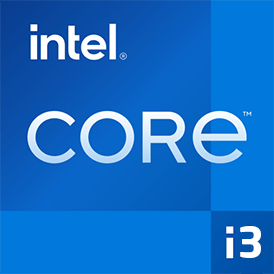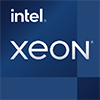
Intel Core i3-7020U Benchmark, test e specifiche
Ultimo aggiornamento:
Intel Core i3-7020U è un core processor 2. Può gestire 4 thread contemporaneamente ed è stato introdotto il Q3/2018. Si basa sul 7. Gen della serie Intel Core i3 e richiede una scheda madre con il socket BGA 1356. Intel Core i3-7020U ottiene 571 punti con un core CPU nel benchmark Geekbench 5. Quando si utilizzano tutti i core della CPU, il risultato è 1.327 punti.

| Cognome: | Intel Core i3-7020U |
|---|---|
| Famiglia: | Intel Core i3 (205) |
| Gruppo CPU: | Intel Core i 7000U (18) |
| Architettura : | Kaby Lake U |
| Segmento: | Mobile |
| Generazione: | 7 |
| Predecessore: | -- |
| Successore: | -- |
CPU Cores e frequenza di base
I 2 core della CPU del Intel Core i3-7020U clock con 2,30 GHz. Il numero di core della CPU e la frequenza di clock del processore sono in gran parte responsabili delle prestazioni complessive.
| CPU Cores / Threads: | 2 / 4 |
|---|---|
| Architettura principale: | normal |
| Cores: | 2x |
| Hyperthreading / SMT: | Si |
|---|---|
| Overclocking: | No |
| Frequenza: | 2,30 GHz |
| Turbo Frequenza (1 Core ): | -- |
| Turbo Frequenza (2 Cores): | -- |
Grafica interna
Con Intel HD Graphics 620, Intel Core i3-7020U ha una grafica integrata. Questo ha 24 processori SM, che hanno un totale di 192 texture shader. L'iGPU non solo abilita i giochi, ma accelera anche in modo significativo la riproduzione di video, ad esempio.
| nome GPU: | Intel HD Graphics 620 |
|---|---|
| Frequenza GPU : | 0,30 GHz |
| GPU (Turbo ): | 1,00 GHz |
| Unità di esecuzione: | 24 |
| Shader: | 192 |
| Hardware Raytracing: | No |
| Data di lancio : | Q2/2016 |
| Max. visualizzazioni: | 3 |
|---|---|
| Generation: | 9.5 |
| Direct X: | 12 |
| Tecnologia : | 14 nm |
| Max. GPU Memoria: | 32 GB |
| Frame Generation: | No |
Hardware codec support
I processori con grafica integrata possono elaborare e riprodurre video in modo più rapido ed efficiente. Ciò può avere un effetto positivo sulla durata della batteria dei notebook, ad esempio.
| h265 / HEVC (8 bit): | Decodificare / Codificare |
|---|---|
| h265 / HEVC (10 bit): | Decodificare / Codificare |
| h264: | Decodificare / Codificare |
| VP8: | Decodificare / Codificare |
| VP9: | Decodificare / Codificare |
| AV1: | No |
|---|---|
| AVC: | Decodificare / Codificare |
| VC-1: | Decodificare |
| JPEG: | Decodificare / Codificare |
Memoria & PCIeIntel Core i3-7020U supporta fino a 32 GB memoria in un massimo di 2 (Dual Channel) canali di memoria. Ciò si traduce in una larghezza di banda di memoria massima di 34,1 GB/s. |
|
| Tipo di memoria : | Banda di memoria: |
|---|---|
| LPDDR3-1866 DDR4-2133 | 29,9 GB/s 34,1 GB/s |
| Max. Memoria: | 32 GB |
| Canali di memoria : | 2 (Dual Channel) |
| ECC: | No |
| PCIe: | 3.0 x 12 |
| PCIe Larghezza di banda: | 11,8 GB/s |
Gestione termicaCon il TDP, il produttore del processore specifica la soluzione di raffreddamento necessaria per il processore. Intel Core i3-7020U ha un TDP di 15 W. |
|
|---|---|
| TDP (PL1 / PBP): | 15 W |
| TDP (PL2): | -- |
| TDP up: | -- |
| TDP down: | -- |
| Tjunction max.: | 100 °C |
Dettagli tecnici
Intel Core i3-7020U ha una cache grande 3,00 MB. Il processore è prodotto in %%Manufacturing%%. La produzione moderna aumenta l'efficienza del processore.
| Tecnologia : | 14 nm |
|---|---|
| Design a chip: | Monolitico |
| Presa: | BGA 1356 |
| L2-Cache: | -- |
| L3-Cache: | 3,00 MB |
| AES-NI: | Si |
| Sistemi operativi: | Windows 10, Linux |
| Virtualizzazione: | VT-x, VT-x EPT, VT-d |
|---|---|
| Set di istruzioni (ISA): | x86-64 (64 bit) |
| Estensioni ISA: | SSE4.1, SSE4.2, AVX2 |
| Data di lancio : | Q3/2018 |
| Prezzo di rilascio: | 281 $ |
| Numero di parte: | -- |
| Documenti: | Scheda tecnica |
Valuta questo processore
Risultati di benchmark

I risultati del benchmark per Intel Core i3-7020U sono stati attentamente controllati da noi. Pubblichiamo solo risultati di benchmark che sono stati creati da noi o che sono stati inviati da un visitatore e poi controllati da un membro del team. Tutti i risultati sono basati e rispettano le nostre linee guida di benchmark.
Geekbench 5, 64bit (Single-Core)
Geekbench 5 è un benchmark multi-piattaforma che usa in modo intensivo la memoria del sistema.Il test single-core utilizza solo un nucleo elaborativo della CPU. A tal fine, il numero di nuclei elaborativi o la capacità di hyperthreading non sono rilevanti.

|
AMD FX-4350
4C 4T @ 4,30 GHz |
||

|
Intel Core i5-2410M
2C 4T @ 2,90 GHz |
||

|
AMD FX-8350
8C 8T @ 4,20 GHz |
||
|
|
Intel Core i3-7020U
2C 4T @ 2,30 GHz |
||

|
Intel Core i5-760
4C 4T @ 3,33 GHz |
||

|
Intel Pentium Gold 4417U
2C 4T @ 2,30 GHz |
||

|
Intel Celeron 4305U
2C 2T @ 2,20 GHz |
||
Geekbench 5, 64bit (Multi-Core)
Geekbench 5 è un benchmark multi-piattaforma che usa in modo intensivo la memoria del sistema.Il test multi-core coinvolge tutti i nuclei elaborativi della CPU e si avvale del hyperthreading.

|
Intel Core i3-3210
2C 4T @ 3,20 GHz |
||

|
Intel Core i7-2620M
2C 4T @ 2,70 GHz |
||

|
Intel Core i7-3667U
2C 4T @ 3,00 GHz |
||
|
|
Intel Core i3-7020U
2C 4T @ 2,30 GHz |
||

|
MediaTek Kompanio 500
8C 8T @ 2,00 GHz |
||

|
AMD Athlon II X4 638
4C 4T @ 2,70 GHz |
||

|
Qualcomm Snapdragon 662
8C 8T @ 2,00 GHz |
||
Geekbench 6 (Single-Core)
Geekbench 6 è un punto di riferimento per computer, notebook e smartphone moderni. Ciò che è nuovo è un utilizzo ottimizzato delle architetture CPU più recenti, ad esempio basate sul concetto big.LITTLE e combinando core CPU di diverse dimensioni. Il benchmark single-core valuta solo le prestazioni del core della CPU più veloce, il numero di core della CPU in un processore è irrilevante qui.

|
AMD EPYC 7501
32C 64T @ 3,00 GHz |
||

|
Intel Pentium Gold G5600
2C 4T @ 3,90 GHz |
||

|
Intel Xeon D-1540
8C 16T @ 2,60 GHz |
||
|
|
Intel Core i3-7020U
2C 4T @ 2,30 GHz |
||

|
Intel Core i5-4460T
4C 4T @ 2,70 GHz |
||

|
Intel Xeon D-1527
4C 8T @ 2,70 GHz |
||

|
Intel Core m5-6Y57
2C 4T @ 2,80 GHz |
||
Geekbench 6 (Multi-Core)
Geekbench 6 è un punto di riferimento per computer, notebook e smartphone moderni. Ciò che è nuovo è un utilizzo ottimizzato delle architetture CPU più recenti, ad esempio basate sul concetto big.LITTLE e combinando core CPU di diverse dimensioni. Il benchmark multi-core valuta le prestazioni di tutti i core della CPU del processore. I miglioramenti del thread virtuale come AMD SMT o l'Hyper-Threading di Intel hanno un impatto positivo sul risultato del benchmark.

|
Intel Core i7-2630QM
4C 8T @ 2,00 GHz |
||

|
Intel Pentium G4600
2C 4T @ 3,60 GHz |
||

|
Qualcomm Snapdragon 730G
8C 8T @ 2,20 GHz |
||
|
|
Intel Core i3-7020U
2C 4T @ 2,30 GHz |
||

|
Intel Core i5-4258U
2C 4T @ 2,90 GHz |
||

|
Intel Celeron J6412
4C 4T @ 2,40 GHz |
||

|
Intel Core m5-6Y54
2C 4T @ 2,10 GHz |
||
iGPU - Prestazioni FP32 (GFLOPS a precisione singola)
Le prestazioni di calcolo teoriche dell'unità grafica interna del processore con precisione semplice (32 bit) in GFLOPS. GFLOPS indica quanti miliardi di operazioni in virgola mobile che l'iPPU può eseguire al secondo.

|
AMD A8-5500
AMD Radeon HD 7560D @ 0,76 GHz |
||

|
AMD A8-5500B
AMD Radeon HD 7560D @ 0,76 GHz |
||

|
AMD A8-5600K
AMD Radeon HD 7560D @ 0,76 GHz |
||
|
|
Intel Core i3-7020U
Intel HD Graphics 620 @ 1,00 GHz |
||

|
Intel Core i5-14450HX
Intel UHD Graphics 13th Gen (16 EU) @ 1,50 GHz |
||

|
Intel Atom x7425E
Intel UHD Graphics 24 EUs (Alder Lake) @ 1,00 GHz |
||

|
Intel Processor N200
Intel UHD Graphics 32 EUs (Alder Lake) @ 0,75 GHz |
||
Risultati stimati da PassMark CPU Mark
Alcune delle CPU elencate di seguito sono stati sottoposti a benchmarking da CPU-monkey. Tuttavia, la maggior parte delle CPU non sono state testate e i risultati sono stati stimati utilizzando una formula segreta di proprietà di CPU-monkey. Come tali, essi non riflettono con precisione i valori attuali di Passmark CPU Mark e non sono stati approvati da PAssMark Software Pty Ltd.

|
Intel Core i5-4258U
2C 4T @ 2,90 GHz |
||

|
Intel Core i7-4510U
2C 4T @ 2,70 GHz |
||

|
Intel Core m3-7Y30
2C 4T @ 2,00 GHz |
||
|
|
Intel Core i3-7020U
2C 4T @ 2,30 GHz |
||

|
Intel Core i7-3687U
2C 4T @ 3,30 GHz |
||

|
Intel Celeron N4120
4C 4T @ 2,50 GHz |
||

|
Intel Core i5-4310U
2C 4T @ 3,00 GHz |
||
Blender 2.81 (bmw27)
Blender è un software di grafica 3D gratuito per il rendering (creazione) di corpi 3D, che può anche essere strutturato e animato nel software. Il benchmark di Blender crea scene predefinite e misura i tempi richiesti per l'intera scena. Più breve è il tempo richiesto, meglio è. La scena di riferimento, abbiamo selezionato bmw27.

|
Intel Core i7-7500U
2C 4T @ 3,50 GHz |
||

|
AMD Phenom II X6 1055T
6C 6T @ 3,30 GHz |
||

|
AMD FX-6300
6C 6T @ 4,10 GHz |
||
|
|
Intel Core i3-7020U
2C 4T @ 2,30 GHz |
||

|
Intel Core i7-4600U
2C 4T @ 3,30 GHz |
||

|
Intel Core i5-5300U
2C 4T @ 2,70 GHz |
||

|
AMD FX-4100
4C 4T @ 3,80 GHz |
||
CPU-Z Benchmark 17 (Single-Core)
Il benchmark CPU-Z misura le prestazioni di un processore misurando il tempo impiegato dal sistema per completare tutti i calcoli del benchmark. Più velocemente viene completato il benchmark, maggiore è il punteggio.

|
AMD FX-8300
8C 8T @ 4,00 GHz |
||

|
Intel Core 2 Quad Q6600
4C 4T @ 2,40 GHz |
||

|
Intel Core i5-4210U
2C 4T @ 2,35 GHz |
||
|
|
Intel Core i3-7020U
2C 4T @ 2,30 GHz |
||

|
Intel Pentium E5200
2C 2T @ 2,50 GHz |
||

|
Intel Core i5-4200U
2C 4T @ 2,30 GHz |
||

|
Intel Core i3-3110M
2C 4T @ 2,40 GHz |
||
CPU-Z Benchmark 17 (Multi-Core)
Il benchmark CPU-Z misura le prestazioni di un processore misurando il tempo impiegato dal sistema per completare tutti i calcoli del benchmark. Più velocemente viene completato il benchmark, maggiore è il punteggio.

|
Intel Core i5-4210U
2C 4T @ 1,70 GHz |
||

|
Intel Core i3-6100U
2C 4T @ 2,30 GHz |
||

|
Intel Pentium Gold 4415U
2C 4T @ 2,30 GHz |
||
|
|
Intel Core i3-7020U
2C 4T @ 2,30 GHz |
||

|
AMD Phenom II X4 965
4C 4T @ 3,40 GHz |
||

|
AMD FX-4100
4C 4T @ 3,60 GHz |
||

|
Intel Pentium G3220
2C 2T @ 3,00 GHz |
||
Cinebench R15 (Single-Core)
Cinebench R15 è il successore di Cinebench 11.5 ed è anch'esso basato su Cinema 4D. Cinema 4D è un software usato a livello mondiale per creare forme in 3D. Il test single-core utilizza solo un nucleo elaborativo della CPU. A tal fine, il numero di nuclei elaborativi o la capacità di hyperthreading non sono rilevanti.

|
Intel Celeron G1620
2C 2T @ 2,70 GHz |
||

|
Intel Core i3-4000M
2C 4T @ 2,40 GHz |
||

|
Intel Pentium G2010
2C 2T @ 2,80 GHz |
||
|
|
Intel Core i3-7020U
2C 4T @ 2,30 GHz |
||

|
AMD Athlon II X4 860K
4C 4T @ 4,00 GHz |
||

|
Intel Core i3-3220T
2C 4T @ 2,80 GHz |
||

|
Intel Xeon E7-4890 v2
15C 30T @ 3,40 GHz |
||
Cinebench R15 (Multi-Core)
Cinebench R15 è il successore di Cinebench 11.5 ed è anch'esso basato su Cinema 4D. Cinema 4D è un software usato a livello mondiale per creare forme in 3D. Il test multi-core coinvolge tutti i nuclei elaborativi della CPU e si avvale del hyperthreading.

|
AMD Phenom II X3 740
3C 3T @ 3,00 GHz |
||

|
AMD Phenom II X3 B75
3C 3T @ 3,00 GHz |
||

|
Intel Core M-5Y71
2C 4T @ 2,20 GHz |
||
|
|
Intel Core i3-7020U
2C 4T @ 2,30 GHz |
||

|
Intel Celeron G5900TE
2C 2T @ 3,00 GHz |
||

|
Intel Pentium 4405U
2C 4T @ 2,10 GHz |
||

|
Intel Core m5-6Y57
2C 4T @ 2,20 GHz |
||
Benchmarks

Geekbench 5 (SC)
2.488 inserimenti
2.488 inserimenti

Geekbench 5 (MC)
2.461 inserimenti
2.461 inserimenti

Geekbench 6 (SC)
1.754 inserimenti
1.754 inserimenti

Geekbench 6 (MC)
1.702 inserimenti
1.702 inserimenti

FP32 SP (iGPU)
2.026 inserimenti
2.026 inserimenti

PassMark CPU-Mark
2.391 inserimenti
2.391 inserimenti

Blender 2.81 (bmw27)
190 inserimenti
190 inserimenti

CPU-Z Benchmark 17 (SC)
231 inserimenti
231 inserimenti

CPU-Z Benchmark 17 (MC)
733 inserimenti
733 inserimenti

Cinebench R15 (SC)
1.106 inserimenti
1.106 inserimenti

Cinebench R15 (MC)
1.101 inserimenti
1.101 inserimenti

Geekbench 3 (SC)
942 inserimenti
942 inserimenti

Geekbench 3 (MC)
938 inserimenti
938 inserimenti
Confronti più popolari
Torna all'indice






